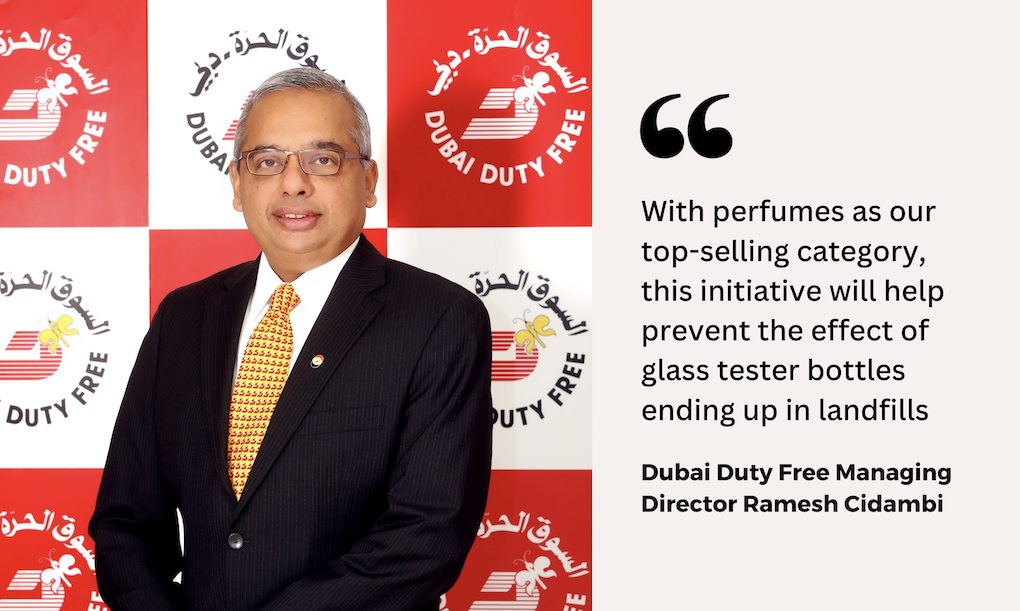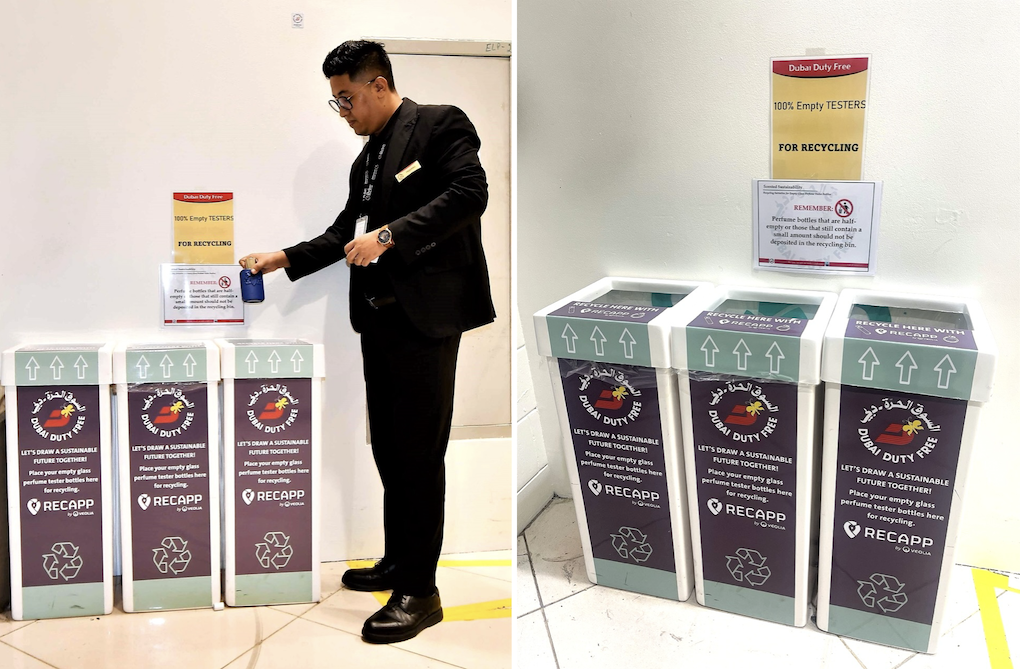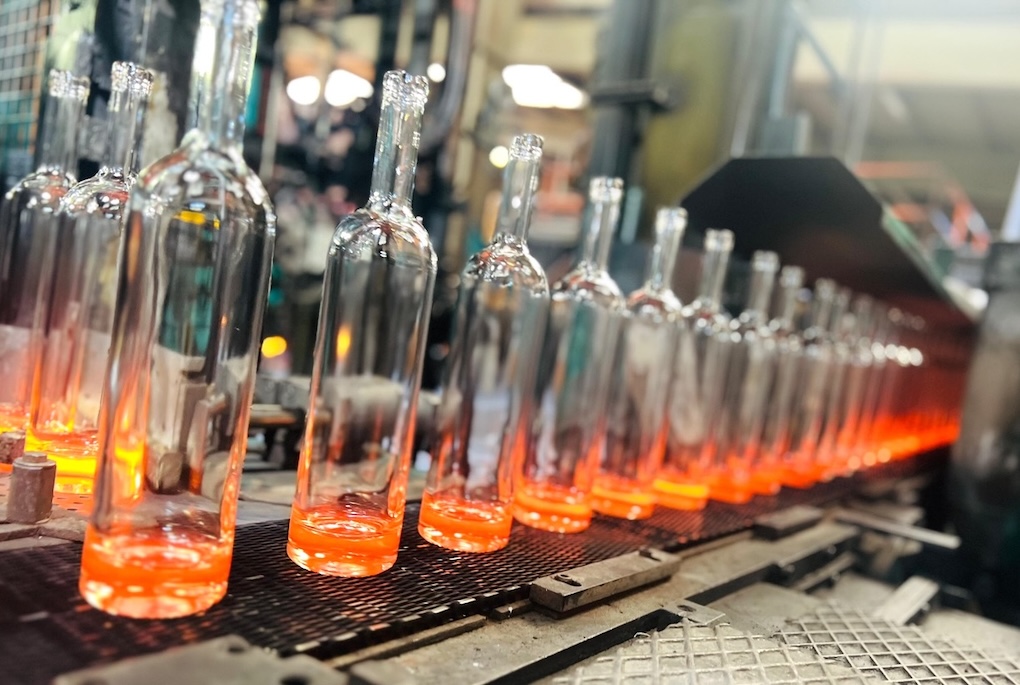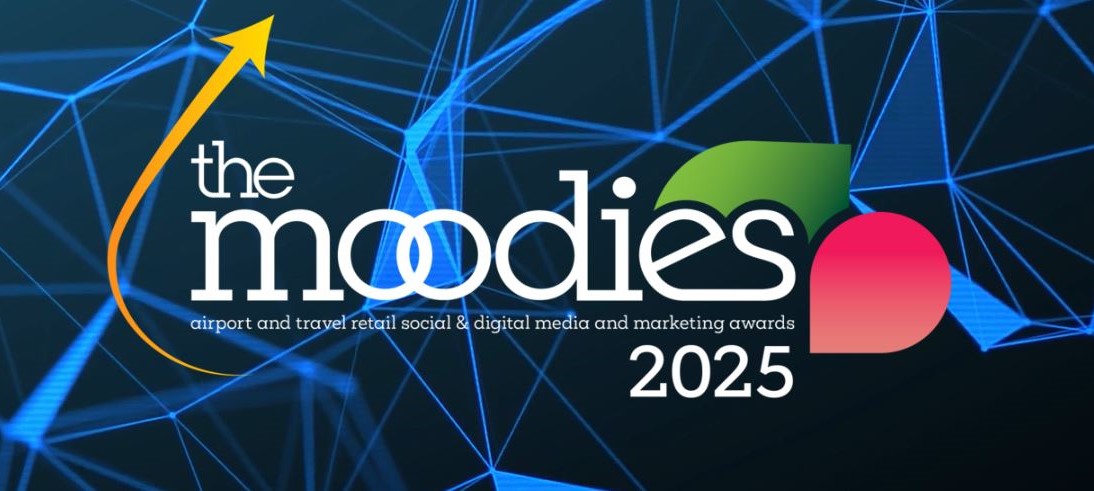
UAE. Dubai Duty Free, in partnership with Veolia’s digital recycling solution Recapp, has unveiled a programme to recycle empty perfume tester glass bottles at Dubai International Airport.
This initiative will help Dubai Duty Free optimise its end-of-life product recovery and recycling process, enabling the company to contribute positively to the environment.
Thirty recycling boxes have been placed across all Dubai Duty Free perfume outlets, where staff can deposit empty glass tester bottles.
Dubai Duty Free Managing Director Ramesh Cidambi said: “We are delighted to launch this pioneering initiative and excited to work with Recapp by Veolia and all our perfume suppliers to contribute to the UAE Circular Economy Policy.

“With perfumes as our top-selling category, this initiative will help prevent the effect of glass tester bottles ending up in landfills.”
Recapp by Veolia General Manager Jerome Viricel added: “This innovative partnership with Dubai Duty Free stems from our strong commitment to promoting sustainable consumption patterns in the retail sector. It is in line with our strategic focus on closing the loop for recycling, from bottle to bottle.
“This programme will provide convenient opportunities for retailers to responsibly dispose of glass perfume bottles and bring new momentum to the culture of recycling as the UAE celebrates the extended Year of Sustainability.”
As a part of the programme, Dubai Duty Free will involve all of its fragrance suppliers in a one-year sustainable partnership. The retailer highlighted contributions from LVMH-owned perfume brand Kenzo.

Recapp by Veolia is using a third-party collector to pick up empty glass perfume testers from Dubai Duty Free. The bottles will be converted into glass cullets after contamination removal.
The cullets will then be used as raw materials to produce new glass bottles at Recapp’s partner facility in the UAE. This process reduces the need for new raw materials, uses less energy and lowers CO2 emissions.
Recapp by Veolia will send regular reports on glass collection for the entire duration of the programme. This will also include key performance indicators on environmental impact, reduction of CO2 emissions, energy savings and other recycling statistics. ✈










